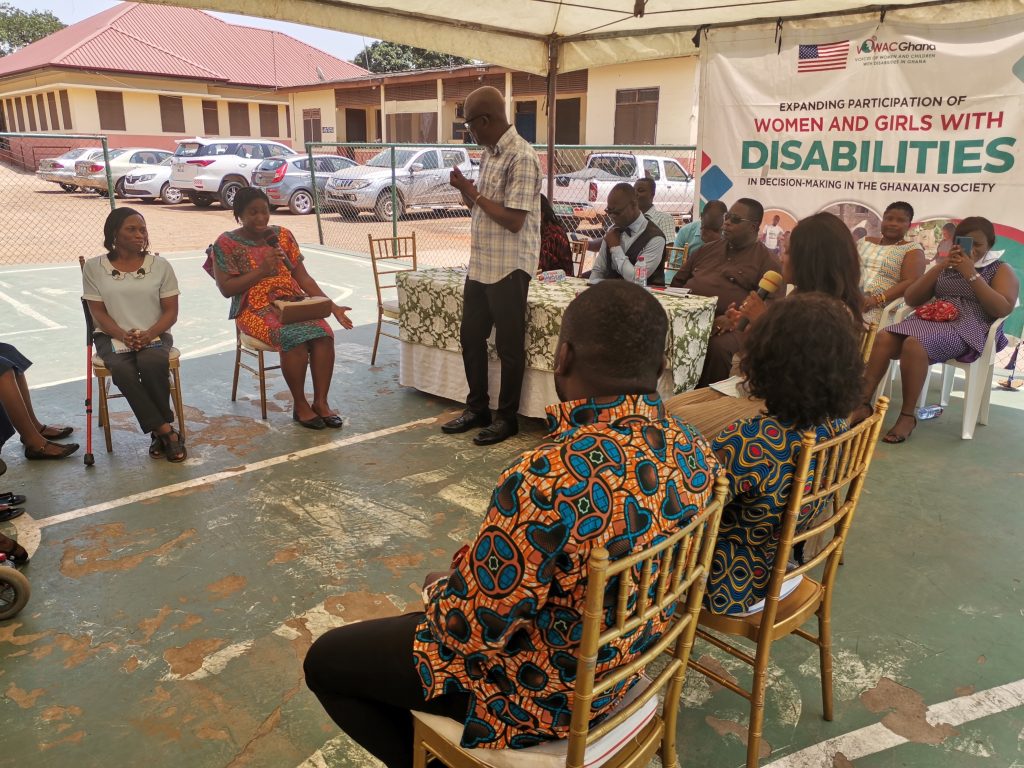By Muniratu Akweley Issah
Accra, March 13, GNA – Mrs Beatrice Akua Mahmood, Founder, Voices of Women and Children with Disability in Ghana (VOWAC GHANA), has asked the government to ensure the inclusion of women and girls with disability for national development.
She said women and girls with disabilities faced numerous challenges, which disadvantaged them and charged duty bearers to consider their needs towards inclusive development.
She made the call during the commemoration of the lnternational Women’s Day (IWD) organised by VOWAG Ghana in Accra on the theme: “Count her in”.
The commemoration of the IWD was to highlight the challenges that persons with disability face and the need for interventions to include persons with disability and their caregivers to have a meaningful life in society.

Globally, persons with disabilities constitute 16 per cent of the population.
Making reference to the 2021 population and Housing Census, Mrs Mahmood said women with disability stood at 8.8 per cent, constituting a large portion of the country’s population with numerous challenges affecting them.
She said women with disabilities had not been captured in the current disability Act 715, and called on the government to expedite action for inclusion so they could have access and enjoy every social protection benefits they deserved.
“The UNFPA establishes that one out of five is a woman with disability, this means that women with disability in Ghana constitute a greater portion of the population, yet we are disadvantaged and among the poorest in society,” she said.
She said they needed respect and dignity in society and access to transportation, technology and digitalisation.
The Founder said despite the high numbers, they continued to face exclusion politically, socially, economically, educational, health and empowerment, among others.
Mrs Mahmood said in spite of their impairment, they were knowledgeable, adding that with inclusion, their voices would be heard and they could contribute their quota to national development in line with the Sustainable Development Goals.
Mrs Hannah Awadzi, Executive Director of the Special Mothers Project, said issues of persons with disability, particularly caregivers, had not been taken into consideration regarding social protection.
She said caregivers had often faced many challenges in the absence of interventions that would benefit them.
She said “we like the fact that they are now thinking that we exist. Now when they are making policies, they actually think about the child and a mother of the child with disability.”
Mrs Awadzi, a mother of a child with Cerebral palsy, said, despite the progress made, “we need policies that will address the challenges of caregivers of children and persons with disability”.
Sharing her experience, Ms Rebecca Efua Nunoo, Disability Inclusion Advisor, Ghana Federation of Disability (GFD), said: “As a person with a disability, movement was very difficult for me back at the Senior High School level. I sometimes had to miss classes because I could not climb the staircase to the top floor but in all these, I decided to strive higher to be an inspiration to others.”
She urged persons with disability to remain committed and focused in their careers to attain higher heights to prove they were capable.
GNA